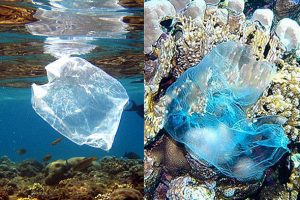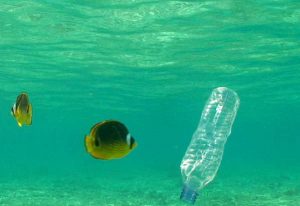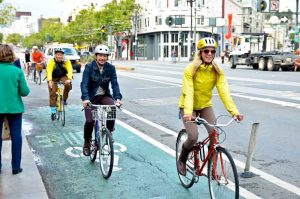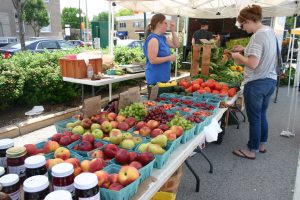
As we bid farewell to 2016, we here at Passions of Paradise thought we’d jump right in to 2017. As we all work at an award-winning ecotourism operator, our New Year’s Resolutions tend to be a bit different thank “get in shape” or “save money”. We take marine conservation to heart, and we thought we’d help kick off 2017 with some resolutions you can make to help the environment. As you make plans for the upcoming year, take some of the following tips to heart, and you are already on your way to a greener 2017!
Ban the Bag
For years now, there has been a slow but growing movement worldwide to reduce or eliminate single-use plastic bags. While most people have some idea that these bags are bad for the environment, many are shocked at the actual extent. Plastic bags in the ocean can take 1000 years to break down, and are a regular cause of death for marine wildlife.
What you can do: Use reusable shopping bags. Many retailers sell them and use a variety of eco-friendly materials. There are also several websites devoted to upcycling and recycling everyday items into bags. If you must use a one-use bag, be sure to recycle it—in Australia, Coles and Woolworths offer recycling bins for plastic bags.

Ditch the Bottle
Bottled water has become a mainstay of modern society. While many still bemoan this product (after all, water comes for free out of the tap!), these bottles are here to stay. But empty plastic bottles, like plastic bags, are slowly choking the world’s oceans and killing marine wildlife. Most of these bottles are also made of PET, a plastic that requires 3 litres of water to produce for every 1 litre of plastic.
What you can do: Use reusable bottles. There are many different styles and brands, from your humble free-drink bottle found at many promotional items to sturdier options with options like built-in purifiers. Grab a reusable bottle and fill it up throughout the day.

Get Moving
We live in a world dominated by car travel. While habits differ from city to city, most places in Australia require a car to get around. While public transit in some areas is not as popular as it could be, most people agree it is actually possible to get around in most Australian cities without a car. Using public transport, as well as some increases in the amount you walk, will not only save the Earth, but help improve your overall health.
What you can do: Use public transport and walk as many places as you can. If you must use a car, try and carpool with friends and co-workers. Or grab a bicycle and get peddling—it will amaze you how much better you feel!

Buy Local
Many people walk through the grocery aisles and have very little idea of where their food comes from. There’s no shortage of processed food to tempt the senses, even around healthier options. But these highly-processed foods, while light on the wallet, carry a high environmental cost. These processed foods are a result of industrial practices, and require a lot of energy to produce and transport.
What you can do: eat fresh food, cook more meals at home, and try to buy locally-sourced food. You’ll notice how much better you feel, and may even save a bit more money each week. You’ll also have the added benefit of helping the environment, which leads us to…

Meatless Mondays, Vegan Tuesdays…
Following our last point, animal products carry with them a high environmental cost. Fruits and vegetables have a lower cost of production when compared to animal products such as meat and dairy. Many people are switching to vegetarian and vegan diets for a multitude of reasons, including reduced environmental impacts. The “Meatless Monday” movement is an attempt to get more people to reduce their carbon footprint from animal products. Even those who are not thinking of going vegetarian are having one or two meals a week that are meat-free.
What you can do: Pick a day, or even one meal a week, and experiment with vegetable-based dishes. Even if you are not vegetarian or vegan, you should notice a difference in eating healthier. You will also have the added bonus of helping the environment.

